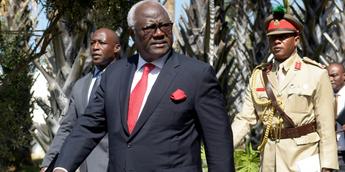
By KABS KANU
The West Africa Analyst of the British Broadcasting Corporation ( BBC ) , Paul Melly, who is also a consulting fellow with the Africa Programme at Chatham House in London, has described the treason charges brought against former President Ernest Bai Koroma as dubious accusations.
In January this year, the Maada Bio-led SLPP Government took Former President Ernest Bai Koroma to court, charged with treason for his alleged involvement in what the government described as a failed coup attempt on November 26, 2023, which Sierra Leoneans and the diplomatic community highly suspect to have been stage-managed by Bio himself. The SLPP also charged Koroma with Misprision of Treason, a crime of concealing knowledge of treasonable acts, a statement from the ministry of information and civic education explained .
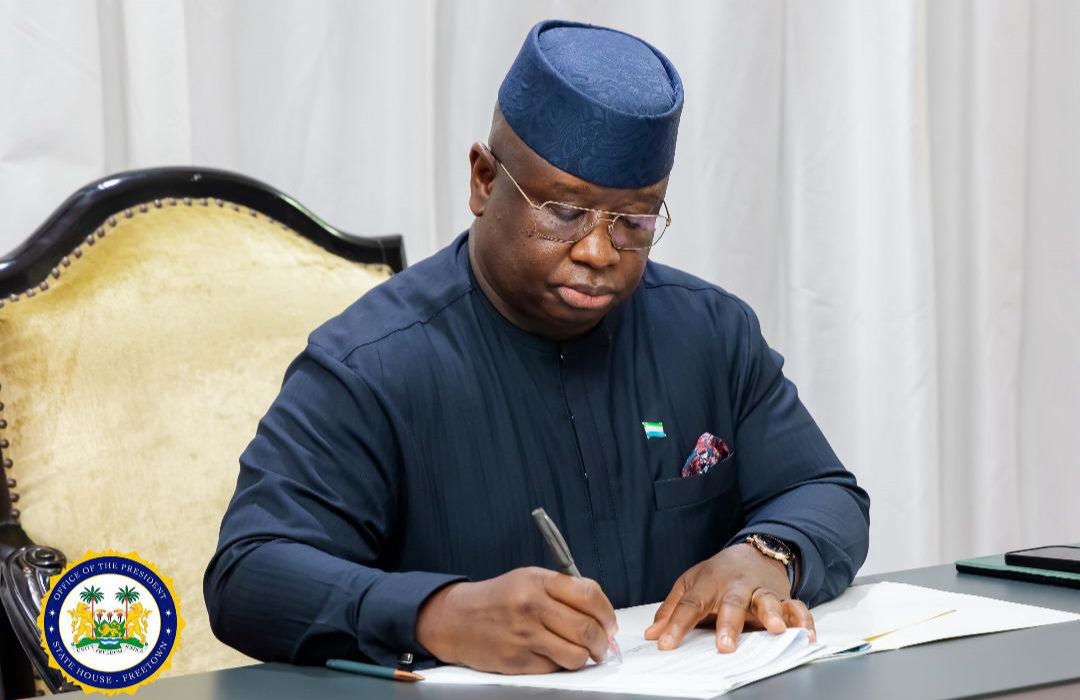
BIO FACED A BIG HUMILIATION FROM ECOWAS
But the West Africa Analyst of the BBC has written that “..Mediation by Ecowas persuaded the Sierra Leone government to allow former head of state Ernest Bai Koroma – who faced dubious accusations of links to a failed coup attempt – to leave for Nigeria on ‘medical grounds’ “.
Mr. Melly was describing the crisis that has surrounded the Economic Community of West African States ( ECOWAS ) and the state of tatters that the organization now finds itself.
Cognizant of the fact that the treason charges against former President Koroma were bogus, the international community , led by ECOWAS, moved swiftly to evacuate Koroma to Nigeria to stop Bio in his diabolical plans to frame the former president and possibly harm him ( An action that would have actually plunged Sierra Leone back into war).
President Maada Bio faced a big humiliation in the wrangles over Ernest Koroma. Bio wanted to wield the big stick by refusing the ECOWAS plans to have Ernest Koroma out of harm’s way , but ECOWAS warned him that if he refused, they will explore every means to accomplish their demand . Bio had already flashed signs to his fickle-minded but very vindictive supporters that he was going to stand his ground against ECOWAS and keep Koroma in Freetown.
ERNEST KOROMA : SAFE AND SOUND IN NIGERIA
Social media went viral with boastful statements and chest-beatings by Bio’s supporters but ECOWAS showed Bio that they were his boss as they sent a Nigerian Air Force plane to pluck Ex-President Koroma out of his hands. As they watched the airforce plane zoom off into the sky with Koroma and fade in the horizon, SLPP supporters turned on their hero and social media seethed for days with insults and angry incendiary statements against Bio , who they described as a coward , despite describing himself as a retired Brigadier. Reports are that Bio really felt gravely humiliated by the ECOWAS action , especially when he is also being forbidden to take any adverse action against the former president’s properties, holdings and family in his absence.
Right now, former President Koroma is safely ensconced in Abuja , with many aides, servants and heavy security at his beck and call in a special palace provided for him by the Federal Government of Nigeria.
BELOW IS PAUL MELLY’S ARTCLE.
Ecowas in crisis: Why West Africa’s united front is in tatters
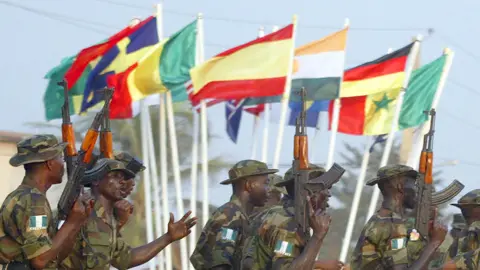 AFP
AFPAs West African ministers gathered in Nigeria’s capital for yet another emergency meeting, they must have been wondering what further shocks could befall their region – its stability and political cohesion already tested to breaking-point.
The session of the mediation and security council of the Economic Community of West African States (Ecowas) had originally been summoned to discuss last month’s announcement from the military juntas leading Burkina Faso, Mali and Niger of their intention to withdraw from the 15-member bloc “without delay”.
But by the time they arrived in Abuja, the ministers found themselves confronted with an entirely new crisis added to their agenda – the decision of Senegal’s head of state, Macky Sall, to postpone the 25 February presidential election.
On Monday, with gendarmes ejecting opposition members from the national assembly, his parliamentary supporters voted to push the polls back until 15 December.
This sparked a storm of protest from the opposition and civil society, with even the governing party’s own candidate, Prime Minister Amadou Ba, opposed to a decision that shakes to its foundations a country that had hitherto been seen as one of West Africa’s most resilient and institutionally rooted democracies.
Just when Ecowas’ civilian-led member states most need to maintain a united front in defence of constitutional rule in the face of the military regimes that have swept across West Africa since 2020, one of the region’s most high-profile democratically elected presidents has unilaterally changed the rules.
Mr Sall intends to extend his stay in power by nine months beyond the official 2 April handover date, in the possibly vain hope of boosting his camp’s hopes of victory at the polls when he does eventually stand down.
Many wonder if his ultimate goal is a U-turn, abandoning his promise to stand down and instead running for a further term.
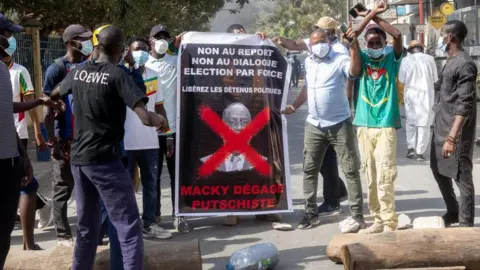 EPA
EPAAlready Ecowas was struggling to sustain serious pressure on the military leaders of the Sahel region – who have bolstered their domestic support by painting the regional bloc as bullying neighbours in thrall to France, the former colonial power in much of the region.
But this has only generated popular resentment which has bolstered support for the military regimes, at least in the short term.
Soft diplomacy – mediation by Togo, which has kept friendly relations with the military regimes despite being an Ecowas state – looked like it might bring a breakthrough, with rumours of a draft agreement on a timetable for Niger’s restoration of civilian rule, only for the country then to suddenly announce its departure from the bloc altogether.
Mali’s transitional head of state, Colonel Assimi Goïta, did not even bother to suggest a new election schedule after abandoning his earlier promise to organise polls this month.
Instead his regime this week simply issued a new statement denouncing sanctions and reiterating its determination to walk out of the regional bloc.
And that is not the only example. The previous year, Togo had passed constitutional amendments to allow President Faure Gnassingbé to stand for two more terms.
In neighbouring Benin all opposition parties were excluded from the legislative polls and then in 2021 two of the leading opposition contenders for the presidency were detained before the election and later sentenced to long jail terms.
Against the background of such manipulations and abuses by civilian-led governments, the Ecowas 2001 protocol on “democracy and good governance” risks reading like empty words.
Among the bloc’s senior policymakers there has been a spreading recognition that this undermines its moral leverage and chances of mobilising public support for efforts to pressure coup leaders into restoring democracy.
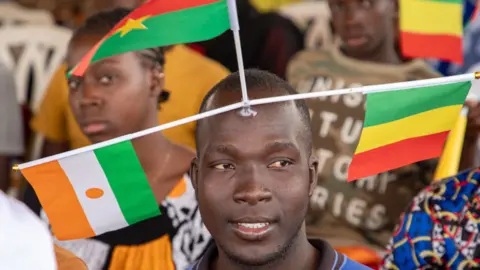 EPA
EPAThat is why its reaction to President Sall’s postponement of the Senegalese election will be so critical.
After earlier attempts to agree a region-wide limit of only two presidential terms were blocked by some member governments, officials have been exploring other ways of toughening the rules to penalise or block constitutional manipulation.
But those changes have not yet been finalised or approved. So for now Ecowas civilian leaders have to work with tools that they have – of which peer-group pressure, traditionally a real strength of West African regional political culture, may be the strongest.
There have been successes.
And mediation by Ecowas persuaded the Sierra Leone government to allow former head of state Ernest Bai Koroma – who faced dubious accusations of links to a failed coup attempt – to leave for Nigeria on “medical grounds”.
Yet in the case of larger or more influential countries, the bloc has generally lacked the diplomatic clout, and sometimes the political will, to enforce meaningful and consistent adherence to its proclaimed democratic governance standards.
Responding to the insistence of the Nigérien, Malian and Burkinabè regimes on pulling out of Ecowas, Thursday’s ministerial meeting refrained from threats or further sanctions. It simply noted that the juntas had not consulted their citizens on this move and then made the positive case for staying in the bloc, to co-operate together in tackling common challenges like climate change, violent extremism, migration and organised crime.
However, this shift away from confrontation will probably not change the minds of the military leaders.
It marks an Ecowas recognition that restoring regional unity will have to be a long-term game, based on restoring goodwill and waiting for pressure from the ordinary citizens of the Sahel states – including the millions who live as long-term settled immigrants in coastal West African countries – to begin to make itself felt.
But this comes close to an admission that extending common democratic principles to the Sahel once more will have to wait for another day.
Tackling the urgent new threat to Senegal’s democracy cannot be shelved or phased. The country is a cornerstone of Ecowas – and albeit with flaws, its political system is built on fundamental principles and institutions. The stakes are huge.
Much of the Senegalese political class and public are in uproar over the president’s postponement of the election.
Numerous constitutional experts insist that President Sall and his parliamentary majority do not even have the legal power to change the date of the polls or extend the head of state’s term beyond its previously scheduled end on 2 April.
Against this background, if Ecowas retreats from clear defence of basic constitutional principles, opting instead for a soft stance towards an incumbent civilian leader who is “a member of the club”, its already eroded credibility as a defender of any common democratic principles will be profoundly damaged in the eyes of many West Africans.
Paul Melly is a consulting fellow with the Africa Programme at Chatham House in London.

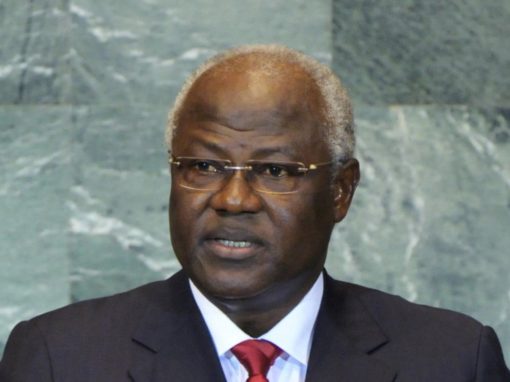
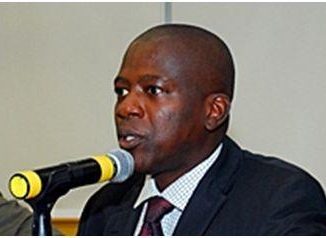
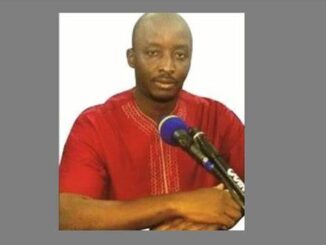
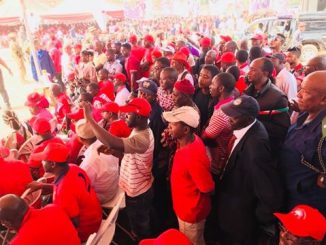
Leave a Reply